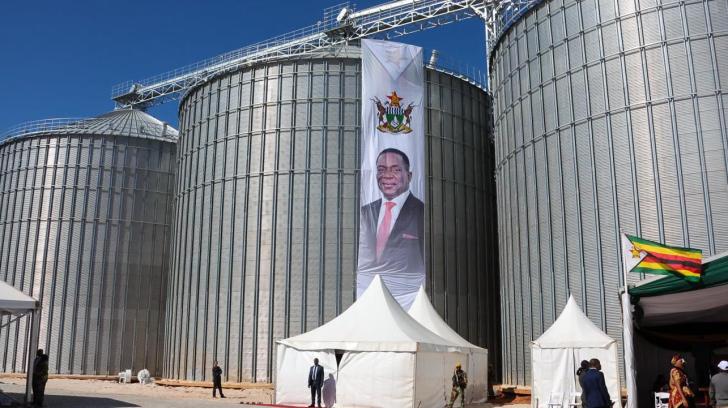News / National
Zimbabwe tightens grain import rules
08 Sep 2025 at 11:54hrs |
11 Views

The Government has introduced new regulations aimed at curbing grain and oilseed imports, compelling millers, stockfeed producers, and processors to prioritise locally sourced raw materials as part of Zimbabwe's push for food sovereignty and industrial self-reliance.
Statutory Instrument 87 of 2025, gazetted on Friday, amends the Agricultural Marketing Authority (Grain, Oilseed and Products) By-laws of 2013. The law prohibits the importation of grain, oilseeds, and related products except under limited circumstances.
From April 1, 2026, processors will be legally required to source at least 40 percent of their annual raw material needs from local farmers. By April 1, 2028, all such requirements must be fully met through domestic production.
Lands, Agriculture, Fisheries, Water and Rural Development Minister Dr Anxious Masuka said the policy builds on measures introduced in 2020, when off-takers were encouraged to finance part of their raw material requirements locally.
"This Statutory Instrument is relevant in the context of localising value chains and pursuing food self-sufficiency and sovereignty," Dr Masuka said. "We are preparing our industries for full localisation of maize, wheat, soya, sunflower, cotton and related meat value chains. It ensures that Zimbabwe becomes an agro-industrial hub anchored on our own production."
To protect farmers, the instrument introduces two pricing benchmarks: an import parity price, reflecting the landed cost of imported grain including freight and insurance, and a production parity price based on local production costs. Where import prices fall below local parity levels, the difference will be channelled into the Agricultural Revolving Fund to shield domestic producers from external shocks.
Dr Masuka noted that Zimbabwe is currently in surplus, having harvested 2.9 million tonnes of cereals against a national requirement of 2.2 million tonnes. Traditional grains accounted for 634,000 tonnes, marking a record output. The Grain Marketing Board has been directed to assist millers and off-takers in accessing supplies from its 1,804 depots nationwide.
Industry voices welcomed the move. Buy Zimbabwe executive chairperson Munyaradzi Hwengwere said the regulations would strengthen local industry while rewarding farmers' productivity. "The country has already exceeded requirements, producing 2.9 million tonnes, including a record 634,000 tonnes in traditional grains. This is the moment to trust and invest in our farmers," he said.
Statutory Instrument 87 of 2025, gazetted on Friday, amends the Agricultural Marketing Authority (Grain, Oilseed and Products) By-laws of 2013. The law prohibits the importation of grain, oilseeds, and related products except under limited circumstances.
From April 1, 2026, processors will be legally required to source at least 40 percent of their annual raw material needs from local farmers. By April 1, 2028, all such requirements must be fully met through domestic production.
Lands, Agriculture, Fisheries, Water and Rural Development Minister Dr Anxious Masuka said the policy builds on measures introduced in 2020, when off-takers were encouraged to finance part of their raw material requirements locally.
To protect farmers, the instrument introduces two pricing benchmarks: an import parity price, reflecting the landed cost of imported grain including freight and insurance, and a production parity price based on local production costs. Where import prices fall below local parity levels, the difference will be channelled into the Agricultural Revolving Fund to shield domestic producers from external shocks.
Dr Masuka noted that Zimbabwe is currently in surplus, having harvested 2.9 million tonnes of cereals against a national requirement of 2.2 million tonnes. Traditional grains accounted for 634,000 tonnes, marking a record output. The Grain Marketing Board has been directed to assist millers and off-takers in accessing supplies from its 1,804 depots nationwide.
Industry voices welcomed the move. Buy Zimbabwe executive chairperson Munyaradzi Hwengwere said the regulations would strengthen local industry while rewarding farmers' productivity. "The country has already exceeded requirements, producing 2.9 million tonnes, including a record 634,000 tonnes in traditional grains. This is the moment to trust and invest in our farmers," he said.
Source - Sunday Mail
Join the discussion
Loading comments…





































